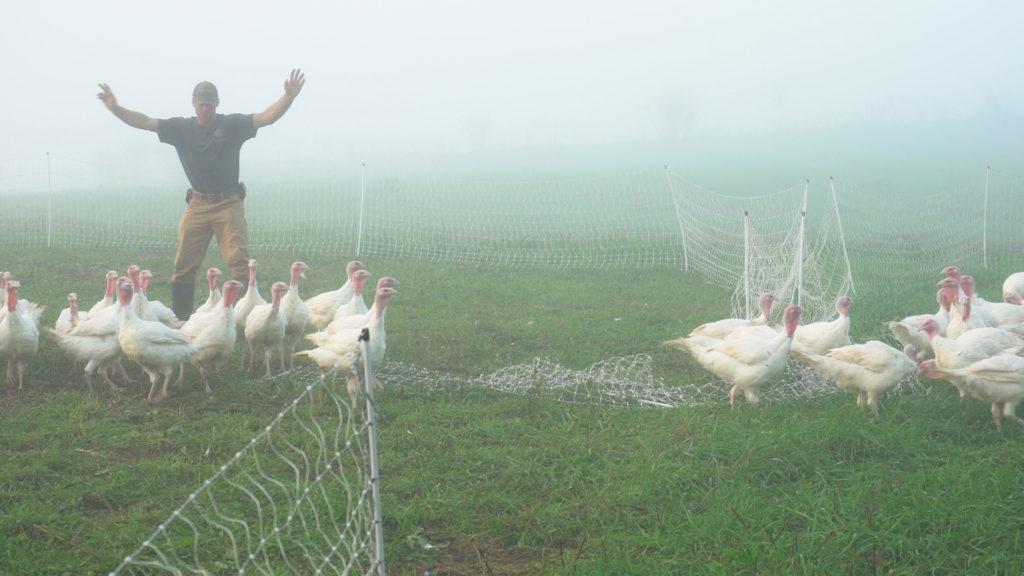Monday November 1 – Thursday November 4, 11pm PT
Mark Street and Tanya Goldman
Labor Studies across Cinema
In-person & online
Organized by Devon Narine-Singh

Microscope is pleased to present “Defining the Worker: Labor Studies across Cinema,” featuring the 68-minute feature “Work Songs” by Mark Street (2019), preceded by a short presentation “Finding the Present in the Past: Revisiting 1930s Labor Films” by Tanya Goldman.
From the curator: “Labor continues to become, ever-spoken, ever-present and yet also ever-ignored by those with power. Our own community has seen recent moves for labor recognition both nationwide (IATSE) and locally. Goldman and Street masterfully present in accessible ways, creating immediate dialogue. Scholarship and practice are mixed tonight, showing how many avenues can fight for the same cause.”
The event will take place in-person at the gallery before a live audience, with capacity limited to an audience of 30. Proof of Covid vaccine and masks are required for entry.
It will also be viewable to an online audience, who will also be able to participate in the Q&A following the screening via live chat.
Online General Admission $9
Online Member Admission $7
General Admission (in-person): $10
Members Admission (in-person): $8
Online tickets will become available on Monday at 7:00PM ET on the event page on our website.
Program:
Finding the Present in the Past: Revisiting 1930s Labor Films
Presentation by Tanya Goldman, 10 minutes
As we find ourselves in a moment of renewed worker activism, this short talk considers labor’s past by discussing Men and Dust (Lee and Sheldon Dick, 1940), an idiosyncratic American documentary about industrial illness and poverty among Midwestern miners and their families. Alternating between moments of anti-capitalist Brechtian alienation and direct calls to action, the film encapsulates a range of representational strategies and aesthetic approaches available to leftist filmmakers then and now. The film’s impassioned call for public health reform and worker dignity assumes new resonance today.
Works SongsBy Mark Street, HD video, 2019, 68 minutes
“Work is about a search for daily meaning as well as daily bread, for recognition as well as cash, for astonishment rather than torpor; in short, for a sort of life rather than a Monday through Friday sort of dying.” — Studs Terkel
Through interviews and observational footage “Work Songs” explores how various workers find meaning in their jobs. The gig economy, automatization and the decreasing power of unions are explored in planned and spontaneous interviews, leavened by finely observed evocations of work places. A longshorewoman in San Pedro, CA bemoans the decline of unions, a cab driver in Pittsburgh talks about a drunk customer who asked him to drive to Boston, an organic farmer talks about evolving marketing strategies, a t-shirt factory in North Carolina comes to life as the day progresses.
“Work Songs” explores various jobs throughout the country. The film asks the viewer to think about technological advances, economics and how work may create (or stifle) meaning in people’s lives. This film investigates some old and threatened jobs teetering on the edge of extinction as well as some new professions we couldn’t have imagined a few years ago.
“Work Songs” moves between ideas, locales and investigations of jobs. I’ve planned some interviews and asked deliberate, researched questions; I’ve also asked passersby off the cuff about their work: a lively mix. Each section reveals a different aspect of our evolving relationship to labor, and allows the viewer to reflect on her own negotiation of economic concerns, satisfaction and a larger social good.
_
Mark Street has been making films, videos and installations for 30 years. His work has moved from tactile, abstract explorations of 16mm film to essays on the urban experience to improvised feature length narratives. He has shown at places like the Museum of Modern Art in New York and the National Gallery in Washington DC as well as venues such as the Point Reyes California Oyster Farm. He graduated from Bard College (B.A, 1986) and the San Francisco Art Institute (MFA 1992). He has shown work in the New York Museum of Modern Art Cineprobe series (1991, 1994), at Anthology Film Archives (1993, 2006, 2009), Millennium (1990,1996), and the San Francisco Cinematheque (1986, 1992, 2009). His work has appeared at the Tribeca (5 times), Sundance, Rotterdam, New York, London, San Francisco, New York Underground, Sarajevo, Viennale, Ourense (Spain), Mill Valley, South by Southwest, and other film festivals. His projects has been supported by a number of grants from foundations, including the Jerome Foundation, the Film Arts Foundation, New York State Council on the Arts, the Maryland State Arts Council and the NY Experimental TV Center. In 2006 he was asked to participate in the Hallwalls Artists Residency Program in Buffalo, NY. In 2018 he was a Visiting Artist at the Brooklyn Navy Yard. Some of his film work has been performed live (at Tonic, Galapagos and Le Petit Versaille in NYC) with accompanying musicians, including Marc Ribot, Zeena Parkins, Bradford Reed, Marco Testoni and Jane Scarpantoni. In 2007 at Hallwalls he presented a multi media show entitled Inside and Out: Infected Districts and Memory Lanes with Buffalo performance and music groups Real Dream Cabaret and Open Music Ensemble. Street is Program Director of the Visual Arts Program at Fordham University where he teaches film/video production and other courses that engage contemporary artistic practice.
Tanya Goldman is a PhD candidate in Cinema Studies at New York University. She currently teaches at Sarah Lawrence College and Hofstra University. Her research on documentary has appeared in Cineaste, the Historical Journal of Film, Radio, and Television, and in the edited volume InsUrgent Media from the Front: A Media Activism Reader (Indiana University Press, 2020).
_
Microscope’s Event Series 2021 is sponsored by Re:Voir, a home video label for classic and contemporary experimental film in Paris, France.

